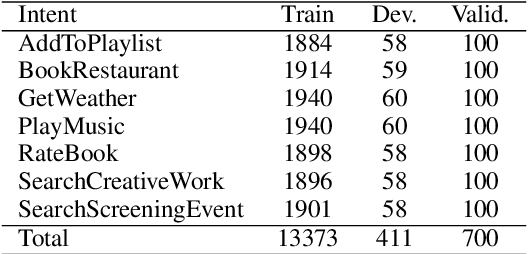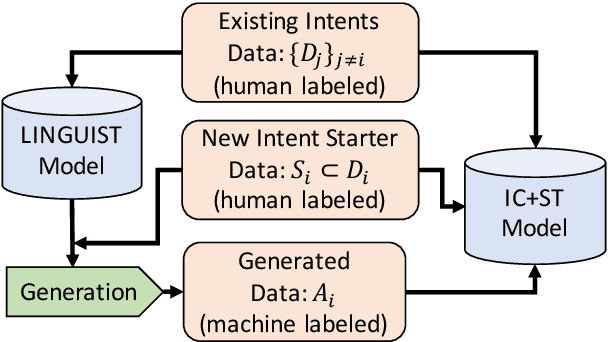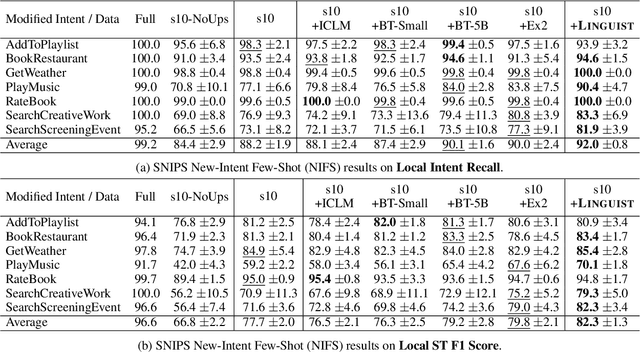Yannick Versley
LINGUIST: Language Model Instruction Tuning to Generate Annotated Utterances for Intent Classification and Slot Tagging
Sep 20, 2022



Abstract:We present LINGUIST, a method for generating annotated data for Intent Classification and Slot Tagging (IC+ST), via fine-tuning AlexaTM 5B, a 5-billion-parameter multilingual sequence-to-sequence (seq2seq) model, on a flexible instruction prompt. In a 10-shot novel intent setting for the SNIPS dataset, LINGUIST surpasses state-of-the-art approaches (Back-Translation and Example Extrapolation) by a wide margin, showing absolute improvement for the target intents of +1.9 points on IC Recall and +2.5 points on ST F1 Score. In the zero-shot cross-lingual setting of the mATIS++ dataset, LINGUIST out-performs a strong baseline of Machine Translation with Slot Alignment by +4.14 points absolute on ST F1 Score across 6 languages, while matching performance on IC. Finally, we verify our results on an internal large-scale multilingual dataset for conversational agent IC+ST and show significant improvements over a baseline which uses Back-Translation, Paraphrasing and Slot Catalog Resampling. To our knowledge, we are the first to demonstrate instruction fine-tuning of a large-scale seq2seq model to control the outputs of multilingual intent- and slot-labeled data generation.
Findings of the 2016 WMT Shared Task on Cross-lingual Pronoun Prediction
Nov 27, 2019



Abstract:We describe the design, the evaluation setup, and the results of the 2016 WMT shared task on cross-lingual pronoun prediction. This is a classification task in which participants are asked to provide predictions on what pronoun class label should replace a placeholder value in the target-language text, provided in lemmatised and PoS-tagged form. We provided four subtasks, for the English-French and English-German language pairs, in both directions. Eleven teams participated in the shared task; nine for the English-French subtask, five for French-English, nine for English-German, and six for German-English. Most of the submissions outperformed two strong language-model based baseline systems, with systems using deep recurrent neural networks outperforming those using other architectures for most language pairs.
* cross-lingual pronoun prediction, WMT, shared task, English, German, French
Incorporating Semi-supervised Features into Discontinuous Easy-First Constituent Parsing
Sep 12, 2014



Abstract:This paper describes adaptations for EaFi, a parser for easy-first parsing of discontinuous constituents, to adapt it to multiple languages as well as make use of the unlabeled data that was provided as part of the SPMRL shared task 2014.
 Add to Chrome
Add to Chrome Add to Firefox
Add to Firefox Add to Edge
Add to Edge